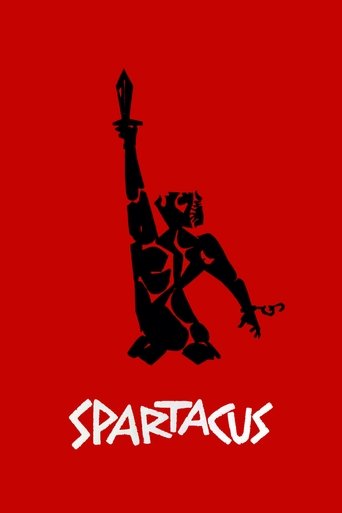They trained him to kill for their pleasure ... but they trained him a little too well
"Spartacus," the 1960 epic historical drama, stands as a monumental achievement in American cinema, produced by Bryna Productions and Universal Pictures. Directed by the legendary Stanley Kubrick and based on the novel by Howard Fast, the film chronicles the story of Spartacus, a Thracian slave who leads a massive revolt against the Roman Republic. The film's grandeur is matched by its powerful performances, particularly from Kirk Douglas in the titular role, whose portrayal of the stoic yet passionate leader captures the essence of the character. The film's narrative delves deep into themes of freedom, oppression, and human dignity, resonating with audiences and critics alike. One of the most striking aspects of "Spartacus" is its visual splendor, brought to life by cinematographer Russell Metty. The sweeping landscapes and meticulously designed sets transport viewers to ancient Rome, creating an immersive experience that enhances the storytelling. The iconic battle sequences, choreographed with precision and filmed with an eye for detail, showcase the scale and intensity of the slave rebellion. These scenes are not only thrilling but also serve to underscore the film's central message about the struggle for liberty against overwhelming odds. The screenplay, penned by Dalton Trumbo, is another highlight of "Spartacus." Trumbo, a blacklisted writer during the McCarthy era, was able to reclaim his place in Hollywood through this project, and his script is both eloquent and emotionally charged. The dialogue, particularly in scenes between Spartacus and his fellow slaves, as well as his interactions with Roman patricians like Crassus (played by Laurence Olivier), is rich with subtext and philosophical undertones. The film's famous "I am Spartacus!" scene, where the slaves collectively claim to be their leader to protect him, has become an enduring symbol of solidarity and resistance. "Spartacus" also holds a significant place in film history due to its political and social impact. At a time when Hollywood was still grappling with the effects of the Red Scare, the film's themes of resistance against tyranny and the fight for individual rights struck a chord. The film's success helped to break the blacklist, allowing previously ostracized talents like Trumbo to return to mainstream cinema. "Spartacus" remains a testament to the power of cinema to challenge societal norms and inspire change, making it not only a cinematic masterpiece but also a cultural landmark.
Năm:1960
Ngân sách12000000$
Thời lượng197 phút
Doanh thu60000000$
Thể loạiPhim Lịch SửPhim Chiến TranhPhim Chính KịchPhim Phiêu Lưu
Các quốc gia sản xuấtUnited States of America

